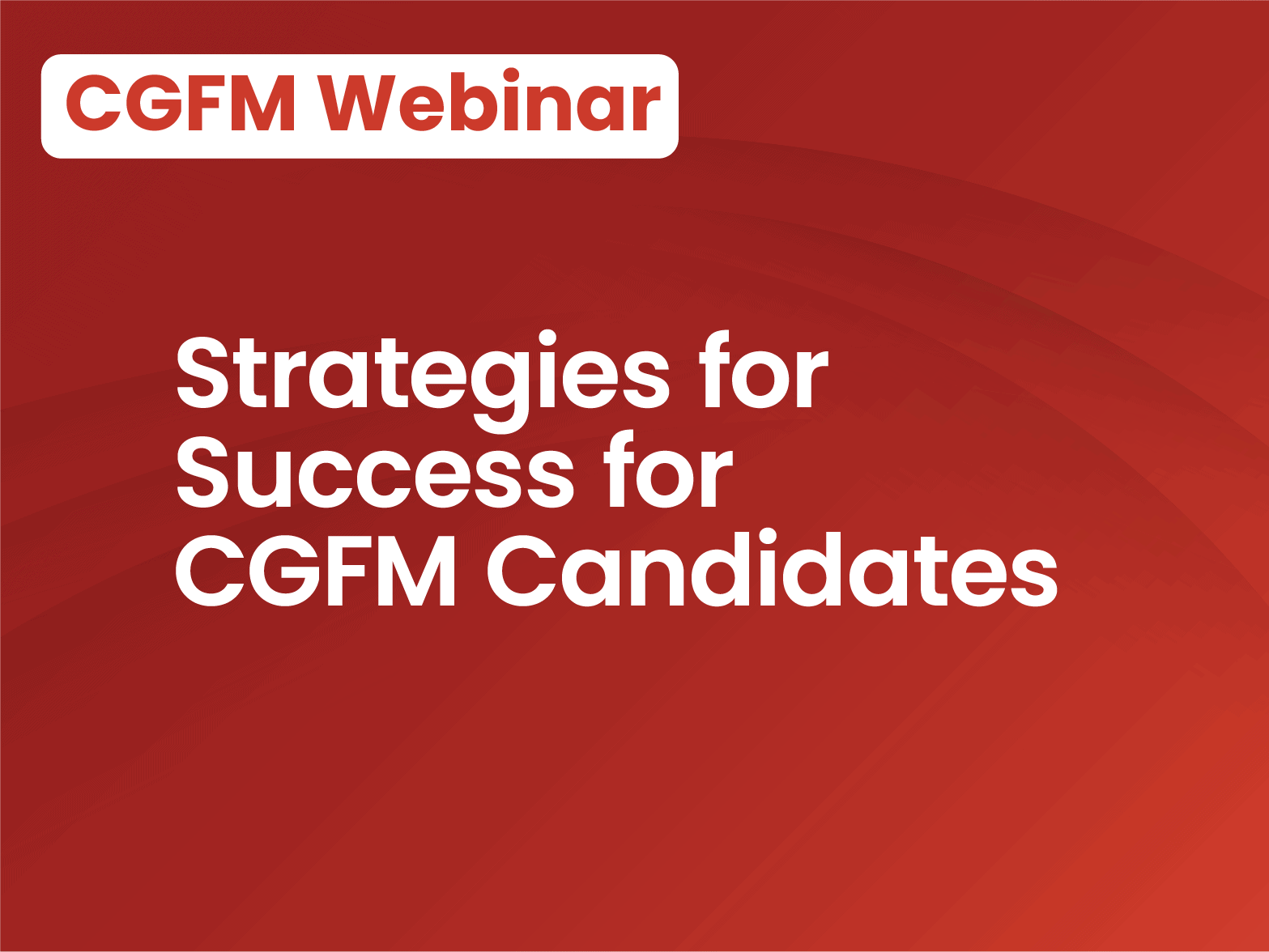
What is CGFM?
Certified Government Financial Manager® (CGFM®) is a professional certification awarded by AGA, demonstrating competency in governmental accounting, auditing, financial reporting, internal controls and budgeting at the federal, state and local levels.
Benefits of CGFM
CGFM next to your name says a lot about your skills and expertise before you walk into the room.
CGFM Promotion
Pass one of your CGFM exams between January 1 and March 31, 2026 and get your next exam free!

What CGFMs are saying about this valuable credential
Being a CGFM has had a tremendous effect on my confidence and boosted my career. CGFM is the fast lane to professional excellence and foundational for the next generation of leaders.
Frank E. Petersen, III, CGFM
Deputy CFO for Finance, NASA,
AGA National President 2024–2025
The Certification Process
Ready to start on your path to CGFM? See the step-by-step process of earning this certification.


Taking the Exams
Getting Ready and Taking Your CGFM Exam
Before you decide on the best way to prepare and schedule your testing appointment, be sure to review the three CGFM exam content outlines that list the main topics covered by each of the three CGFM exams.
CGFM Exam Content Outlines
Exam Preparation
Taking the Exams
Maintaining CGFM Certification
Active CGFMs must renew their certification annually and earn the required continuing professional education (CPE) in government financial management.

Credential Verification
Need to verify someone’s CGFM? See the list of active CGFMs on our website, check their digital badge or contact the CGFM team.
CGFM Frequently Asked Questions
Why should I become a CGFM?
Apply for CGFM if you want to:
- Be a leader in your field.
- Have expanded employment opportunities across federal, state and local governments.
- Have advanced knowledge of governmental accounting, auditing, internal controls, performance measurement, financial reporting, and budgeting.
- Have increased professional confidence.
What is the best way to prepare for CGFM exams?
That depends on your knowledge level, experience, time constraints, individual preferences, and location. All candidates, however, are encouraged to start by reviewing the exam content outlines in the CGFM Exams section on our website. Then, consider each of the study options in the Exam Preparation section.
How many exams do I have to pass and how do I get started?
You must pass three exams—Governmental Environment; Governmental Accounting, Financial Reporting and Budgeting; and Governmental Financial Management and Control. Go to the Certification Process page for more information on application requirements and applying online.
What are the requirements for maintaining my CGFM?
To retain the designation, a CGFM holder must:
- Pay the applicable CGFM renewal fee by the due date every year.
- Adhere to the AGA Code of Ethics.
- Complete at least 80 hours of continuing professional education (CPE) every two years in government financial management topics or related technical subjects (within the designated two-year cycle), including 4 hours in ethics. See CPE Requirements and Calendar of CPE cycles for more information.
Maintain and, if requested by AGA, provide detailed information on CPE hours completed. See Maintaining Certification for more information.
Explore More From AGA
Join AGA
Save on CGFM fees and get discounts on CPEs by becoming an AGA member today!
CGFM Courses
Explore different CGFM course options
Events & Training
See upcoming events and CPE opportunities


